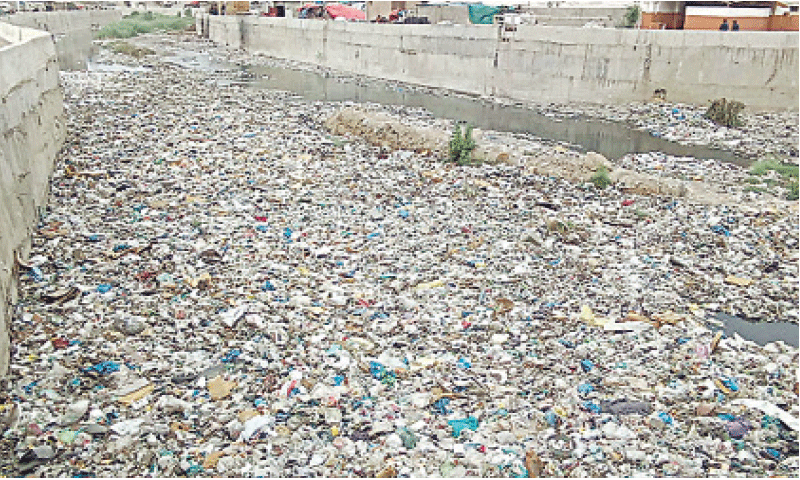KARACHI: Phrases and idioms in any language are coined primarily to relay a message that contains wisdom.
In the English language, the phrase ‘a rainy day’ means a probable time when money will be needed, unexpectedly. This may also suggest that while rain, in a certain way, has romantic and feel-good connotations, it can also bring with it a number of difficulties. The latter seems to be apt for Karachiites.
Every time — and it’s been happening for years now — it rains heavily in the city, citizens are found complaining about at least a few things: nerve-jangling traffic jams, damaged roads, sudden appearance of potholes and puddles, stagnant rainwater on roads and streets, and power failure.
Power failure, surely, in turn makes the availability of water supply a huge problem because in most localities in the city, water is pumped into pipes through machines run by electricity. Don’t the authorities concerned know that?
By authorities concerned one means the bodies responsible for managing Karachi: the provincial government, the Karachi Metropolitan Corporation, the cantonment board, etc.
Every year, during monsoons, a blame game starts which ends without a positive or permanent resolution to the issue. On June 27 and 28, heavy rains disrupted life in Karachi in a painful way. Despite the fact that June 28 was a Saturday, when a majority of the offices were closed, the snarl-up at thoroughfares such as Sharea Faisal was agonising. If one was in District South heading towards the airport, it took at least two hours to move from the Hotel Metropole roundabout to Drigh Road Railway Station.
As if it was an understandable consequence of Nature’s interference in Karachiites’ daily lives, there were reports of a prolonged power breakdown on June 28.
De-silting of major drains is yet to be completed by KMC
In DHA Phase V, for example, electricity went kaput in the afternoon and was restored at 4am. Similarly, quite a few blocks in Gulistan-i-Jauhar, Federal B Area, North Nazimabad, suffered power shutdowns for up to 10 hours.
The worrisome thing is that the monsoon season has arrived early (as it usually begins in July). Have the authorities pre-empted the situation? One can’t be sure.
What adds to the worry is that at some places — for example, from Jail Road to Nipa — construction work has been going on for many a month. If rains come down heavily in July, these projects might get affected. No one knows how much money has so far been invested in the making of these yet-to-be-completed underpasses, overhead bridges and new roads. Whatever the amount may be, they need to be protected from uncalled-for interventions. Also, one hopes that construction work completes as soon as possible because it’s already a massive traffic issue.
It has to be said, though, that the one step that the KMC has taken, in terms of preparing in advance for the rains, is that a few days back the corporation had begun the process of cleaning the stormwater drains in the city.
Karachi Mayor Murtaza Wahab himself witnessed the process during which he had said: “In addition to the 46 major drains, smaller drains are also being cleaned. A joint strategy will be employed to ensure the drainage of rainwater across all towns. As soon as the rains begin, staff, machinery and pumps will be dispatched to major roads. We believe in working indiscriminately across all districts of Karachi and will respond to critics through our work.”
It all sounds good. But, thus far, not all drains have been cleaned.
The clouds, as the month of July sets in, look ominous. There’s likelihood that citizens will soon be faced with a wet season. And if preventive measures are not taken in totality, Karachiites are in for a toilsome time.
Published in Dawn, July 5th, 2025
